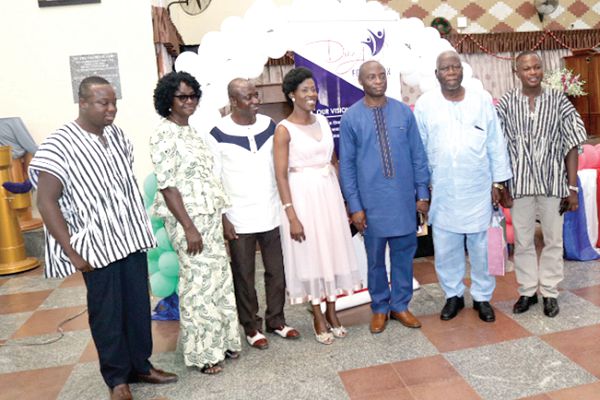
Stop stigmatising mental health sufferers
News Desk Report
4 minutes read
The Chairman of the Mental Health Authority (MHA), Professor Joseph Bediako Asare, has advised Ghanaians to refrain from stigmatising mental health issues and patients as the condition can affect any member of the society at any time.
He said instead of stigmatising mental health patients and attributing every psychiatric condition to superstition, people should rather embrace sufferers and their families and encourage them to seek the required care for the patients.
Prof. Asare, who is a former Chief Psychiatrist of the Ghana Heath Service, explained that most mental health cases began at the adolescent stages but often remained unnoticed and unattended to, leading to severe psychiatric problems in adult patients.
“Anyone could be affected by a mental health condition so we have to be cautious and treat people with such conditions and their families with respect, compassion and dignity and not as if they are ‘cursed’.
“The cardinal rule should be treat others as you would want others to treat you if you were in that situation, as anyone could be affected and you don’t know who it would be from your family,” Prof. Asare advised.
He gave the advice at the inauguration of the Dora Awuah Foundation, a non governmental organisation (NGO), set up to support mental health patients and also play an advocacy role for mental health.
The Dora Awuah Foundation
The Dora Awuah Foundation was founded by a Principal Nursing Officer in mental health, Mrs Dora Awuah, with the aim of promoting sound mental health in the country to reduce the prevalence of mental health challenges as is espoused in its motto: “Sound Mind, Progressive Nation”.
The foundation will place special emphasis on adolescents and issues such as depression and substance abuse.
It will seek to ensure stakeholder collaboration with schools, communities, religious and other organised groups and will facilitate access to counselling and undertake outreach programmes in communities.
So far, the foundation has carried out several public education programmes in religious organisations and schools on mental health.
Crisis intervention programmes have also been organised for junior high school graduates who had challenges with school placement, while counselling was also provided to some parents.
Crisis intervention programmes have also been organised for junior high school graduates who had challenges with school placement, while counselling was also provided to some parents.
Inadequate facilities
Prof. Asare, who chairs the seven-member board of the foundation, bemoaned the lack of adequate mental health facilities in the country and said there was still the perception that anyone who sought help at the designated facility for mental health treatment was ‘mad’.
He said while regular hospitals and health facilities were now required to provide services to those who needed such medical attention, more needed to be done to educate people that basic mental health service was now a walk-in service at many health facilities just like any other medical service.
He called for support for the foundation “because it is fully dedicated to removing the stigma associated with mental health”.
Burden of mental health
For her part, Mrs Awuah, also a Clinical Psychologist, said the foundation came about as a result of her strong passion for mental health issues to advocate child and adolescent mental health cases which had not been given the needed attention.
She said the foundation, through its activities, sought to fill the vacuum in preventive interventions and ensure the direction of the needed attention to adolescent mental health care in the country.
Also, the prevalence and “the debilitating effects of adolescent mental health challenges make the work of the foundation imperative since its object is to ensure prevention through community-based sensitisation programmes”.
With statistics to support her concerns, Mrs Awuah said: “It is estimated that by the year 2020, mental illness would be a leading contributor to the global burden of diseases and it is also estimated that about 90 per cent of suicide cases occur among adolescents from low and middle-income countries, including Ghana, but these are under-reported due to obvious reasons.”
In Ghana, she said, “mental health problems are largely demonised due to the wide knowledge gap and lack of awareness. Community-based educational and sensitisation programmes are key to enable the populace to access the few treatment services available”.
Members of the board
Other members of the board include Mrs Irene Asare as Vice-Chairperson, Rev. Dr Abraham Nana Opare Kwakye, Mr Amos Aduasare Asuma-Karikari and Mr Frederick Nsatimba.
The rest are Mr Alex Kwasi Awuah, with Mrs Awuah as the Secretary.
